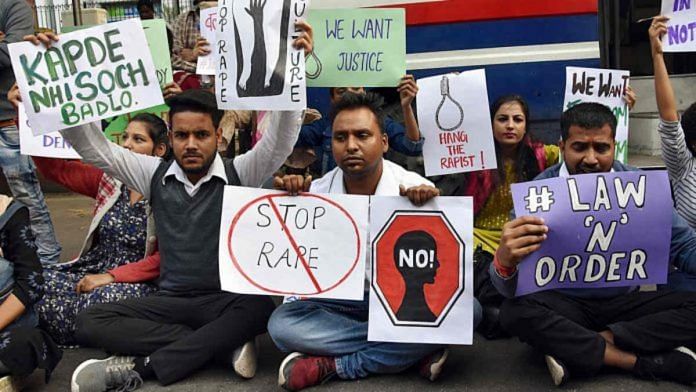Recently, Justice NK Chandravanshi gave an appalling ruling reiterating that sex or any sexual act performed by a husband is not rape, even if it is done by force and against the wife’s wishes. The differing opinion of the various courts in India can clearly be noted as the Kerala High Court gave a contrary opinion and observed marital rape to be valid grounds for seeking divorce. However, the fact that India is one of the only 36 countries to not criminalise marital rape yet, is a brazen reality hindering the criminal discourse of our country.
What does the law say
The Indian Penal Code of 1860 communicates that in a marriage there is implied consent for sexual intercourse, which cannot be said otherwise. Section 375 of the IPC. states that penetration sans informed consent would be categorised as rape. However, Exception 2 to the same section discriminates against married women by refusing them equal protection from rape and sexual harassment. This categorisation is directly violative of the test of reasonable classification provided under Article 14 of the Constitution.
Even the United Nations Convention on the Elimination of all Forms of Discrimination against Women, of which India is a signatory, has proposed in its resolution that marital rape should be criminalised and that this sort of discrimination is a clear infringement of the law of equality and human dignity.
Article 21 of the Indian Constitution states that “no person shall be denied of his life and personal liberty except according to the procedure established by law”. As a result, Exception 2 is violative of Article 21, as it fails to protect wives from forced sexual acts imposed by their husbands, constituting a detrimental effect on their physical and mental health as well as their right to live with dignity.
In the cases of The State of Karnataka v. Krishnappa and The Chairman, Railway Board v. Chandrima Das, it was held that rape is a crime against the basic postulates of human rights and is an unlawful intrusion onto the right to privacy and sanctity of a female as guaranteed under Article 21.
The Supreme Court in the landmark cases of Puttaswamy v. Union of India and The State of Maharashtra v. Madhukar Narayan ruled that sexual privacy is a fundamental right of all citizens and forced sexual act would be a clear violation of this right. These preceding judgments make no distinction between the rights of married and unmarried women, and there is no contrary judgment establishing that marital relationship abridges an individual’s right to privacy. As a result, the Supreme Court recognises the sexual right of all women, regardless of marital status, as a basic right provided by Article 21 of the Constitution, which is evidently being violated through non-legalisation of marital rape.
Also read: ‘Sexual activity with wife does not amount to rape, even if by force’ — Chhattisgarh HC
What can be done
In a country where a woman gets raped every 16 minutes and the likelihood of an Indian married woman suffering sexual violence is 17 times more, the need for active interest in legalisation of marital rape is pertinent. Even though in the recent past, the Justice Verma Committee and the 42nd Law Commission Report have urged criminalisation of marital rape, the only relief currently available are the civil remedies laid out under the Domestic Violence Act of 2005.
There is an urgent need for the judiciary to recognise marital rape as an offence under the Indian Penal Code, especially now when there is a surge in domestic and sexual violence cases against women due to the pandemic-induced lockdown.
The elimination of Exception 2 of Section 375 and the punishment for marital rape being on par with the one prescribed under Section 376 would eventually lead to holistic development of criminal judiciary in our country.
Regardless of the perpetrator’s identity or the victim’s age, the fact that it was a rape does not change. A woman who is raped by a stranger carries the memory of a horrific incident with her; on the other hand, a woman who is raped by her own husband lives and has to sleep with her rapist. It is high time that Indian women and their human rights are not ignored, especially the judiciary that has sworn to protect every individual’s fundamental rights.
Astha Bhattacharya is a student at National Law University, Odisha. Views are personal.



